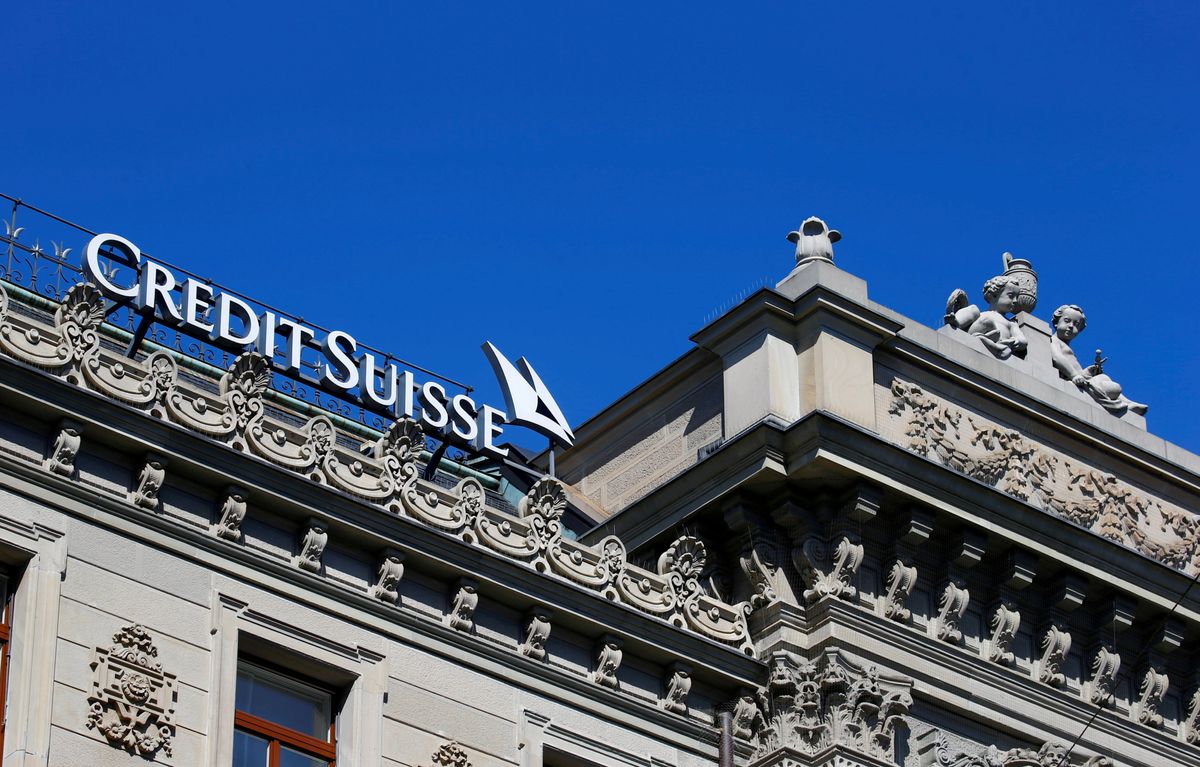Credit Suisse is in trouble. Here’s why

A few minutes every morning is all you need.
Stay up to date on the world's Headlines and Human Stories. It's fun, it's factual, it's fluff-free.
A recent data leak is only the most recent chapter in a yearslong string of scandals and misfortune that have landed the investment bank in an incredibly precarious position.
Credit Suisse Group AG is no stranger to scandal, but it might be teetering on its last leg.
On April 9, the United States brokerage subsidiary for Credit Suisse announced that the personal data – including addresses, social security numbers and bank account details – of several of its former employees had been illegally leaked by a group of 10 individuals, which might include some former employees.
But the data leak is only the most recent chapter in a yearslong string of scandals and misfortune that have landed the investment bank in an incredibly precarious position.
Pre-2021 scandals
In 2019, Credit Suisse Group AG was under intense scrutiny after Chief Operating Officer Pierre-Olivier Bouée ordered the surveillance of the former chief of wealth-management for the bank, Iqbal Khan, who had recently begun working at rival company UBS Group AG.
The incident resulted in the resignation of Bouée, as well as the resignation of the company’s chief executive officer, Tidjane Thiam, who was reportedly not involved in the decision to spy on Khan. The incident also resulted in the apparent suicide of the contractor hired to spy on Khan.
In 2020, accounting fraud was exposed on the part of a major client of Credit Suisse’s, Luckin Coffee Inc., which eventually ended up paying US$180 million to settle regulatory claims by the Securities and Exchange Commission (SEC). The fraud caused massive losses on loans made out to Luckin Coffee’s owner
The company is still caught up in the middle of a US$2 billion corruption scheme in Mozambique, where Credit Suisse financed a shipbuilding group called Privinvest. The scheme involved a Credit Suisse employee taking bribes and the shipbuilding group paying lower fees on their loans.
Greensill losses
In 2017, Credit Suisse investments into the financing firm Greensill Capital paid off well. The income was widely advertised, with the bank’s chief of asset-management publicly broadcasting attractive returns to investors.
But Credit Suisse employees began to voice concerns. One group in the bank halted business with a major client of Greensill, citing suspicious shipments.
In 2018, another investment group in Switzerland ended up firing an employee over investments made in Greensill, raising what should have been further red flags for Credit Suisse.
The bank then turned to a review of the Greensill funds, led by the company’s chief risk officer, Lara Warner. The review ultimately did not turn up any concerns large enough to result in changes of the funds, which were raking in tens of millions of dollars in management fees, so nothing changed.
In 2019, as concerns over the corners Greensill was cutting kept rising, so did the funds being given to them. These funds eventually reached nearly US$10 billion.
But with the COVID-19 pandemic in 2020, investors pulled their money from Greensill and it became clear that the financing firm was heavily reliant on Credit Suisse for its survival. As the situation became more clear, Credit Suisse became increasingly reluctant to provide extra funding and, in March, it froze funds to Greensill.
Archegos losses
Just last week, Credit Suisse Group announced that it would take a US$4.7 billion charge on the Archegos Capital Management swap trade meltdown caused by Bill Hwang.
Hwang, who had previously served as a prime broker to the Tiger Asia Management hedge fund and was accused of insider trading by the SEC in 2012, had turned to managing Archegos, a family office.
Because of the former charges against Hwang, he was considered a high-risk client, but because he was using personal funds instead of client money, it was ultimately decided that Credit Suisse would keep him on as a client.
As Hwang performed more and more successful swap trades, Credit Suisse took on more risk with Archegos than other major investors like Goldman Sachs or Morgan Stanley.
But when things at Archegos began to go awry, Credit Suisse was slow to act. Other banks dumped the large positions at a loss, beating Credit Suisse to the exit, resulting in a US$4.7 billion loss for the bank.
Why it all happened
Executives say that Credit Suisse erred by trying to bring in more money from fewer clients than its competitors, meaning they were ignoring the massive risks they were taking on.
On April 6, it was announced that Lara Warner, the head of the risk and compliance unit at the bank which reviewed both the cases of Archegos and of Greensill, would step down effective immediately.
Have a tip or story? Get in touch with our reporters at tips@themilsource.com




Comments ()